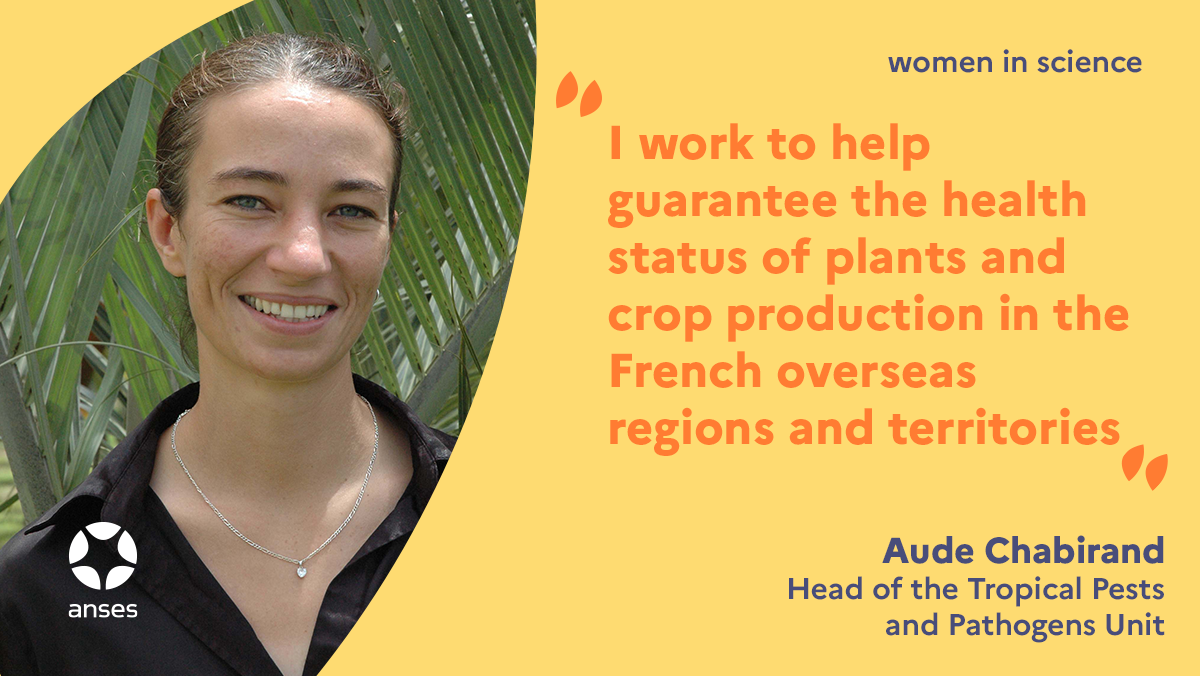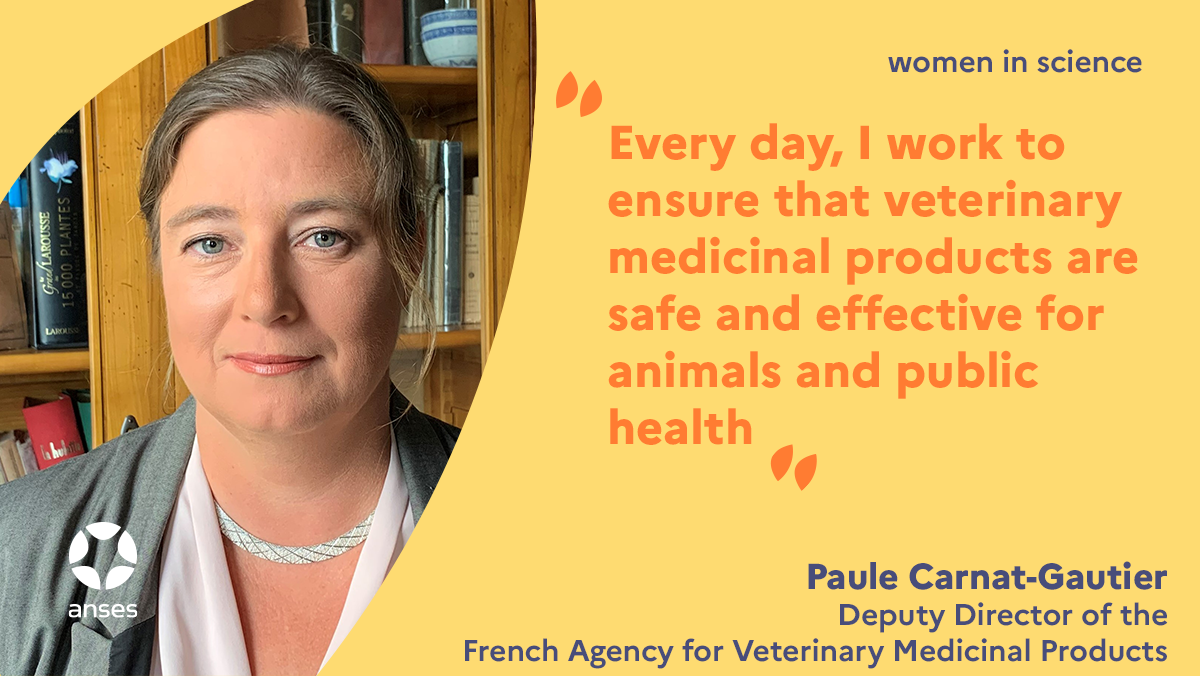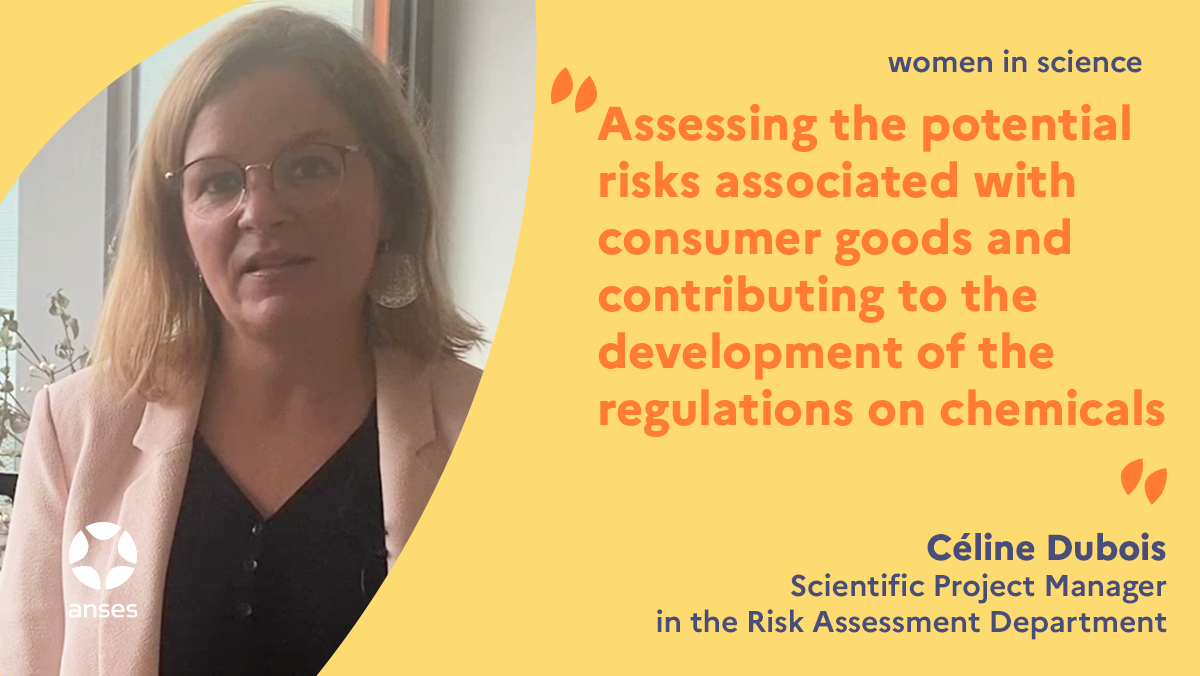ANSES portraits: women in science
In honour of the International Day of Women and Girls in Science, we are inviting you to discover a series of portraits of women scientists at ANSES.

“I'm in charge of ANSES's Health Alerts & Vigilance Department. Vigilance involves reviewing a set of health data and events and identifying those that seem unusual in light of current scientific knowledge. These are then analysed more thoroughly to determine whether they constitute a new risk to the population. The network of experts with which we collaborate helps us to that end. For example, at the start of the COVID-19 pandemic, we received reports from poison control centres and ophthalmologists concerning cases of hand sanitiser getting in the eyes of children. An analysis of these cases and the injuries involved gave rise to a national and international alert, in particular by means of a scientific publication. In the area of occupational health, scientific monitoring enabled us to identify a particular risk of accelerated silicosis – a disease that affects the lungs – in young men who cut slabs of quartz to make kitchen and bathroom countertops. Once again, we issued an alert to better protect these workers”. Juliette Bloch

“A trained agronomist, I've been working at ANSES since 2011. I'm currently Head of the Tropical Pests and Pathogens Unit. It’s part of the Plant Health Laboratory and is located on Reunion Island. We work to develop and validate analytical methods capable of detecting pathogens affecting tropical and Mediterranean plants. And so our work helps guarantee the health status of plants and crop production in the French overseas regions and territories. In a context of increased trade, these territories, most of which are islands located in tropical zones, are at major risk of new pathogens being introduced and becoming established. This would have considerable economic repercussions on local crop production. Some of the pathogens we work on are also major health challenges for the European Union. It is therefore essential to have efficient analytical methods to guarantee the trade of healthy plant material and be able to prevent any disease from emerging”. Aude Chabirand

“I'm a trained veterinarian. I'm currently responsible for the administrative management of veterinary medicinal products and the facilities that manufacture and distribute these products. What drives me is being able to work meaningfully from day to day to ensure that the medicinal products placed on the market are safe and effective for animals and public health. As part of my job, I have to deal with issues related to the use of veterinary medicinal products for all animal species: administration, adverse effects, and also a lack of availability for certain products. I also use my scientific skills to help develop regulatory standards. In this way, I contribute to national and European health policies to manage animal diseases and control antimicrobial resistance”. Paule Carnat-Gautier

“I'm a Scientific Project Leader in charge of promotion and calls for research projects in the Strategy and Programmes Department. As part of my work, I coordinate two internal calls for projects that promote the research carried out by several ANSES entities. They give teams the opportunity to undertake in-depth research, with the hosting of PhD students, and work collaboratively on research issues. Moreover, in conjunction with the Communication Department, I organise ANSES's Scientific and Doctoral Days. This multi-thematic annual event is a special opportunity to showcase the work of scientists and talk about science in the broad sense.
I'm also involved in monitoring activities aimed at promoting discoveries and innovations to the public and private sectors. I provide scientists with assistance, for example when they want to declare an invention, file a patent or issue a call for proposals in collaboration with industrial partners. At the interface between researchers, legal services and partners, I take part in negotiations and in drawing up licensing and knowledge transfer agreements whose aim is to develop new tools and products to serve public health. For example, the promotion of some of the Agency's patents led to the placing on the market of kits for the detection of Shiga toxin-producing Escherichia coli, which are pathogens that cause infections in humans. It's really fascinating to monitor the growth of a scientific project that starts with a discovery and leads to a useful application that can improve life for everyone!” Laëtitia Charron

“I'm a trained chemical engineer and a Scientific Project Manager in the Risk Assessment Department. As part of my work, I coordinate health risk assessments dealing with consumer goods, such as skin allergens in textiles, feminine hygiene products, baby nappies and the surgical and FFP2 masks used during the COVID-19 pandemic. Depending on the results of these collective expert appraisals, it may then be necessary to propose management measures at European level, as part of the REACH regulation, which aims to protect human health and the environment from risks related to chemicals. In this context, I draw up dossiers proposing to limit the quantities of certain chemicals in consumer goods, and I defend them before the European Chemicals Agency. All of these actions carried out collectively are intended to protect the health of consumers and workers”. Céline Dubois